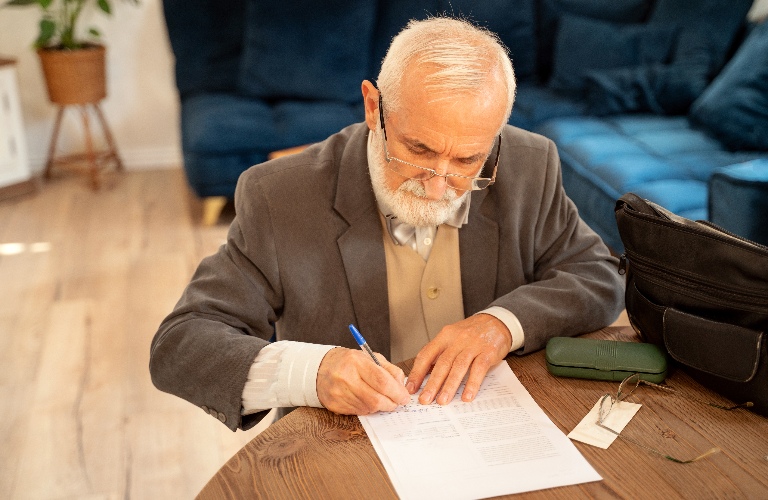Many people in Texas who create an estate plan include a will as part of their estate planning documents. However, when making a will, you may wonder about the requirements you must meet for your will to become valid and enforceable after your death. Specifically, do you need to have your will notarized for a court to accept it for probate? What happens if you don’t get your will notarized, or what happens if you do?
You Do Not Need Notarization for a Valid Will in Texas
Texas law imposes several requirements for wills, including:
- Created by a person aged 18 or older, currently or previously married, or currently a member of the U.S. Armed Forces, auxiliary of the U.S. Armed Forces, or U.S. Maritime Service
- Being in writing (handwritten or printed)
- Signed by the testator in person or another person on behalf of the testator in their presence and under their direction
- Attested by two or more credible witnesses aged 14 and older who sign the will in their handwriting in the testator’s presence
Thus, a person does not need to have their will notarized to ensure its enforceability under Texas law. Nevertheless, a will must strictly follow the requirements of Texas law to avoid issues during probate.
The Role of a Self-Proving Affidavit
Although a will does not require notarization to become valid, notarization of a will can streamline the probate process. A non-notarized will may require witnesses to the will to testify in the probate proceeding regarding the will’s validity. However, notarization can eliminate the need for witnesses to testify by creating a “self-proving” will. A person can make a self-proving will if they have their own and their witnesses’ signatures notarized, or if they and their witnesses sign and notarize an affidavit attesting to the will’s validity. Although the testator and witnesses usually sign the self-proving affidavit as part of the will’s execution, they can later sign and notarize an affidavit affirming the will’s validity.
A self-proving affidavit can help avoid will contests or other complicated litigation during the probate process, as a notary public has affirmed that the testator and their witnesses have acknowledged the will as genuine; thus, the witnesses do not need to testify to confirm the will’s validity.
Benefits of Having a Notarized, Self-Proving Will
Some of the benefits of notarizing your will to create a self-proving will include:
- Provides certainty in the enforceability of the will
- Eliminates delays and additional costs in probate from needing to have the witnesses to the will testify in court
- Reduces the risk of will contests or other legal challenges
Given the substantial benefits of creating a self-proving will through notarization, compared to the minimal costs of notarization, most estate planning attorneys encourage clients to notarize their wills as a best practice to avoid complications and unnecessary expenses when their will goes to probate after their death.

Holographic Wills and Notarization
Texas law recognizes an exception to the requirements for creating a will when a testator makes a holographic will. Texas enforces holographic wills written entirely in the testator’s handwriting. A holographic will does not require attestation by witnesses. A testator does not need to have their holographic will notarized; however, the lack of attesting witnesses and notarization means that a holographic will may not qualify as a self-proving will.
Contact an Estate Planning Lawyer Today
When you create a will, understanding the legal requirements can ensure the enforceability of your will. Contact Carroll Law Group, PLLC, today for a confidential consultation with an estate planning attorney to discuss what requirements you must follow to create a will in Texas.

